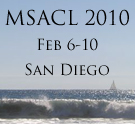The A and C apolipoproteins are extracellular proteins found in plasma that are associated with the lipoproteins HDL, LDL and VLDL. The apolipoproteins serve as critical co factors in numerous pathways involving the transport of free cholesterol to the liver via the reverse transport pathway and the metabolism of triglycerides. One of the symptoms synonymous in patients with type 2 diabetes is the high levels of oxidants in the blood such as H2O2 and HOCl. The oxidants in the blood damage the apolipoproteins by primarily oxidizing methionine to methionine sulfoxide in the apolipoproteins. Methionine sulfoxide changes the hydrophobicity of the residue from a hydrophobic residue to a hydrophilic residue. Since methionine residues are usually present in the hydrophobic patches used by apolipoproteins to interact with protein and lipids, the oxidation of met can render the apolipoproteins ineffective as co factors. An example of this is oxidized apolipoprotein A-1 in vitro is unable to activate lecithin:cholesterol acyltransferase, which is the first enzyme in the reverse cholesterol transport pathway. In order to define the extent of methionine oxidation in the A and C apolipoprotein and other post translational modifications in vivo, a novel mass spectrometric immunoassay was developed for apolipoprotein A-1, A-2, C-1, C-2 and C-3. The assays were conducted on a clinical sampling (n=350) of healthy and type 2 diabetes. The results indicate that methionine sulfoxide is the predominant post translational modification of apolipoproteins in patients with type 2 diabetes, and are significantly increase compared to healthy patients.
Funding was provided by Arizona State University’s Technology and Research Initiative Fund, Agilent Technologies Foundation (Research Project Gift 08US-422UR), and The National Institutes of Health (Grant Numbers R21RR024440 and R24DK083948). |
|



